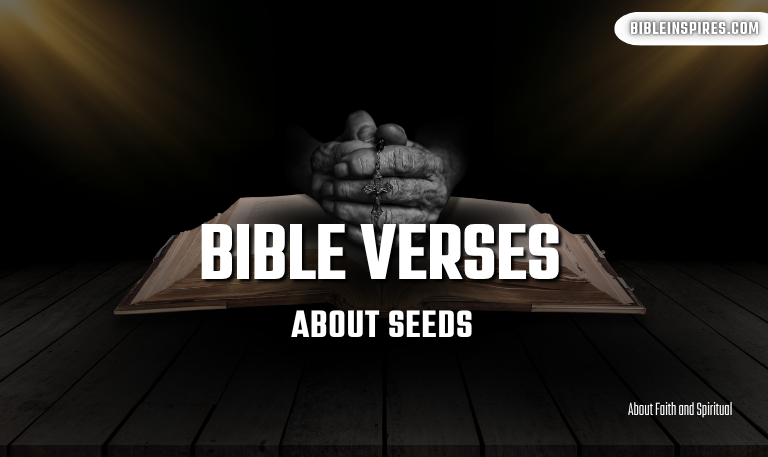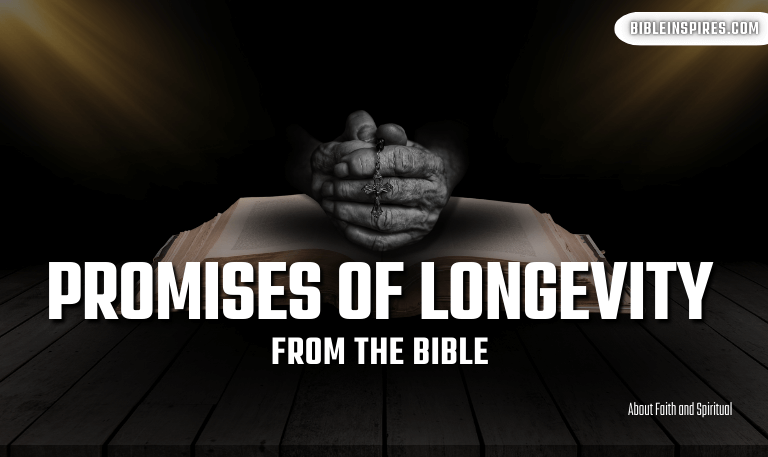Seeds are among the most powerful metaphors in Scripture. Though small and seemingly insignificant, seeds carry incredible potential — the promise of growth, life, and harvest. From the Old Testament through the New Testament, seeds symbolize faith, transformation, and God’s kingdom.
In this article, we explore Bible verses about seeds to uncover their spiritual meaning, dive deep into Jesus’ famous parables, and learn how these timeless teachings apply to our lives today.
What Does the Bible Say About Seeds? Symbolism and Meaning
In biblical context, seeds represent much more than just agricultural life. They serve as metaphors for:
Faith and belief: Just as a tiny seed grows into a fruitful plant, so can faith, no matter how small, flourish with nurturing.
Potential and new beginnings: Seeds symbolize the start of something great and the promise of growth.
God’s Word and kingdom: The Bible often compares God’s word to seeds that, when planted in hearts, produce spiritual fruit.
The Bible uses seeds to illustrate the spiritual journey — from planting faith to cultivating it and eventually harvesting blessings.
Read Also: Bible Verses About Esther
Primary Bible Verses About Seeds
Before we examine deeper teachings, here are some of the foundational Bible verses about seeds that reveal their spiritual importance:
Matthew 13:31-32 (NIV) — “The kingdom of heaven is like a mustard seed, which a man took and planted in his field. Though it is the smallest of all seeds, yet when it grows, it is the largest of garden plants…”
1 Corinthians 3:6 (NIV) — “I planted the seed, Apollos watered it, but God has been making it grow.”
Galatians 6:7 (NIV) — “Do not be deceived: God cannot be mocked. A man reaps what he sows.”
Mark 4:26-29 (NIV) — “The kingdom of God is like a man who scatters seed on the ground… the soil produces a crop—first the stalk, then the head, then the full kernel in the head.”
These verses form the backbone of the seed metaphor in biblical teaching.
Old Testament Bible Verses About Seeds
The Old Testament lays the foundation for the seed metaphor, connecting seeds to creation, blessings, and God’s covenant:
Genesis 1:11-12 — God commands the earth to bring forth vegetation, including seed-bearing plants, symbolizing God’s creative power and order.
Psalm 126:5 — “Those who sow with tears will reap with songs of joy.” Here, seed sowing symbolizes perseverance and hope.
Isaiah 55:10-11 — God compares His word to rain that waters the earth and makes it fertile for seed to grow, illustrating the power of divine promises.
Jeremiah 1:10 — God gives Jeremiah authority “to uproot and tear down, to destroy and overthrow, to build and to plant,” showing seeds as symbols of new beginnings and restoration.
New Testament Bible Verses About Seeds
In the New Testament, Jesus and the apostles use seeds extensively to teach spiritual truths:
Parable of the Sower (Matthew 13:3-23): Jesus explains how seeds fall on different types of soil, representing the varied reception of God’s word in people’s hearts.
Faith Like a Mustard Seed (Luke 17:6): Even faith as small as a seed can accomplish great things.
Seed and Resurrection (1 Corinthians 15:36-38): Paul likens resurrection to a seed that dies and rises as new life, emphasizing transformation and eternal hope.
John 12:24 — “Unless a grain of wheat falls into the earth and dies, it remains alone; but if it dies, it bears much fruit.” This teaches sacrifice and fruitful living.
Jesus’ Parable of the Sower: A Deep Dive
This parable is central to understanding biblical seed symbolism:
“A farmer went out to sow his seed. As he was scattering the seed, some fell along the path… on rocky places… among thorns… and on good soil.” (Matthew 13:3-8)
Explanation:
Path (Hard soil): Represents those who hear the word but do not understand it; Satan snatches it away.
Rocky ground: People who receive the word with joy but fall away during trials.
Thorns: Those distracted by worldly concerns.
Good soil: Those who hear, understand, and bear fruit.
The parable teaches that the condition of the heart determines how the “seed” (God’s word) grows.
Planting Seeds: Spiritual and Practical Lessons
What Does Planting Seeds Mean Spiritually?
Planting seeds symbolizes the initial act of faith — hearing or sharing God’s word. It requires:
Intentionality: Choosing to accept or spread the message.
Patience: Seeds take time to grow.
Trust: Believing that God will cause growth.
Practical Takeaways
Share kindness and faith regularly — you never know where a seed will sprout.
Cultivate your own heart like good soil through prayer and study.
Be patient with yourself and others during spiritual growth.
Growing Seeds: The Journey of Spiritual Maturity
Spiritual growth mirrors seed growth stages:
Germination: The seed sprouts — new faith awakens.
Seedling: Early growth requires care and protection.
Maturity: Faith strengthens and deepens.
Fruitfulness: Faith produces good works and blessings.
The Bible encourages believers to nurture growth through study, fellowship, and obedience.
Harvest and Reaping: Sowing and Reaping in Scripture
The Bible teaches a clear principle:
“A man reaps what he sows.” (Galatians 6:7)
Harvest metaphors remind us:
Actions have consequences, spiritual or physical.
God blesses those who faithfully sow righteousness.
Harvest is often the result of long-term perseverance.
Faith as a Seed: From Mustard Seed to Mighty Tree
The mustard seed is the smallest seed Jesus used to describe faith:
Despite its size, it grows into a large plant providing shelter and life (Matthew 17:20).
Faith begins small but can grow to overcome challenges.
This analogy encourages believers not to underestimate small beginnings.
Seeds and Miracles: God’s Provision in Unexpected Ways
In the Bible, seeds also symbolize God’s miraculous provision:
Jesus multiplying seeds and fish to feed thousands.
The idea that God can take “little” and make it “much.”
This symbolizes trusting God to bless our efforts beyond natural limits.
Seeds as Blessings: Prosperity and Fruitfulness
Seeds represent God’s blessings in many verses:
Deuteronomy 28:12: God will “open the heavens… to bless all the work of your hands.”
Psalm 1:3: Like a tree planted by streams of water, producing fruit in season.
These images inspire hope for spiritual and material blessings.
Patience and Seeds: Waiting on God’s Timing
Growth requires patience:
Ecclesiastes 3:1 reminds us there is a time for everything.
James 5:7-8 encourages patience until the “coming of the Lord.”
Spiritual growth and harvest take time — patience is vital.
Seeds and New Life: Resurrection and Renewal
Seeds dying to bring new life perfectly illustrate Christian resurrection:
1 Corinthians 15:36-44 explains how a seed must die to bring life.
This symbolizes transformation, hope, and eternal life.
Evangelism and Seeds: Spreading the Gospel
Believers are called to scatter seeds — the word of God:
Matthew 28:19-20 (The Great Commission) urges sharing the gospel worldwide.
Seed sowing parallels evangelistic efforts: planting the word, trusting God for growth.
How to Meditate on Bible Verses About Seeds
To deeply reflect:
Read verses slowly and visualize planting and growth.
Journal your thoughts on faith and growth.
Pray for God’s help in nurturing your spiritual seed.
Bible Verses About Seeds for Encouragement and Hope
In tough times, seed verses remind us:
God’s word will not return void (Isaiah 55:11).
Even small faith matters (Luke 17:6).
Perseverance leads to joy (Psalm 126:5).
Bible Verses About Seeds for Children
Teaching kids about seeds can build early faith:
Use simple verses like Matthew 17:20.
Engage kids with planting seeds physically.
Explain spiritual growth in relatable ways.
Bible Verses About Seeds FAQs
1. What Does the Bible Say About Seeds?
The Bible uses seeds as metaphors for faith, potential, and God’s word. Seeds represent small beginnings with the promise of growth and fruitfulness.
2. Why Are Seeds Important in the Bible?
Seeds illustrate how God’s word is planted in hearts and grows into faith, leading to spiritual maturity and blessings.
3. What Is the Meaning of the Parable of the Sower?
It teaches that the condition of one’s heart affects how they receive God’s word, resulting in different spiritual outcomes.
4. How Can I Apply Bible Verses About Seeds to My Life?
By planting faith in your heart, nurturing it through prayer and scripture, and patiently waiting for growth and harvest.
5. Which Bible Verse Talks About Faith Like a Mustard Seed?
Matthew 17:20 highlights that even faith as small as a mustard seed can move mountains.
6. What Is the Symbolism of Harvest in the Bible?
Harvest symbolizes the results of our spiritual and physical actions, often representing God’s blessings after faithful sowing.
7. How Do Seeds Represent Blessings and Prosperity?
Seeds symbolize God’s provision, with growth and fruitfulness reflecting blessings both spiritual and material.
8. Can Seed Verses Help in Spiritual Growth?
Yes, they encourage believers to have faith, patience, and perseverance in their spiritual journey.
9. What Are Some Bible Verses About Patience and Growth?
James 5:7-8 and Ecclesiastes 3:1 emphasize waiting for God’s timing and patience during growth.
10. Are There Bible Verses About Seeds for Kids?
Yes, simple verses like Matthew 17:20 and engaging planting activities help teach children about faith and growth.
Conclusion
Bible verses about seeds offer timeless wisdom: small acts of faith can lead to great spiritual growth and abundant blessings. By planting God’s word in our hearts and nurturing it with patience, trust, and action, we participate in God’s transformative work. Reflect on these scriptures often, and let the seed of faith take root and flourish in your life.

![Top 10 Bible Verses About Brotherhood and Love [Explained] 3 Top-10-Bible-Verses-About-Brotherhood-and-Love-[Explained]](https://bibleinspires.com/wp-content/uploads/2025/04/Top-10-Bible-Verses-About-Brotherhood-and-Love-Explained.png)
![11+ Bible Verses About God and Nature [2025] 4 11+-Bible-Verses-About-God-and-Nature-[2025]](https://bibleinspires.com/wp-content/uploads/2025/04/11-Bible-Verses-About-God-and-Nature-2025.png)
